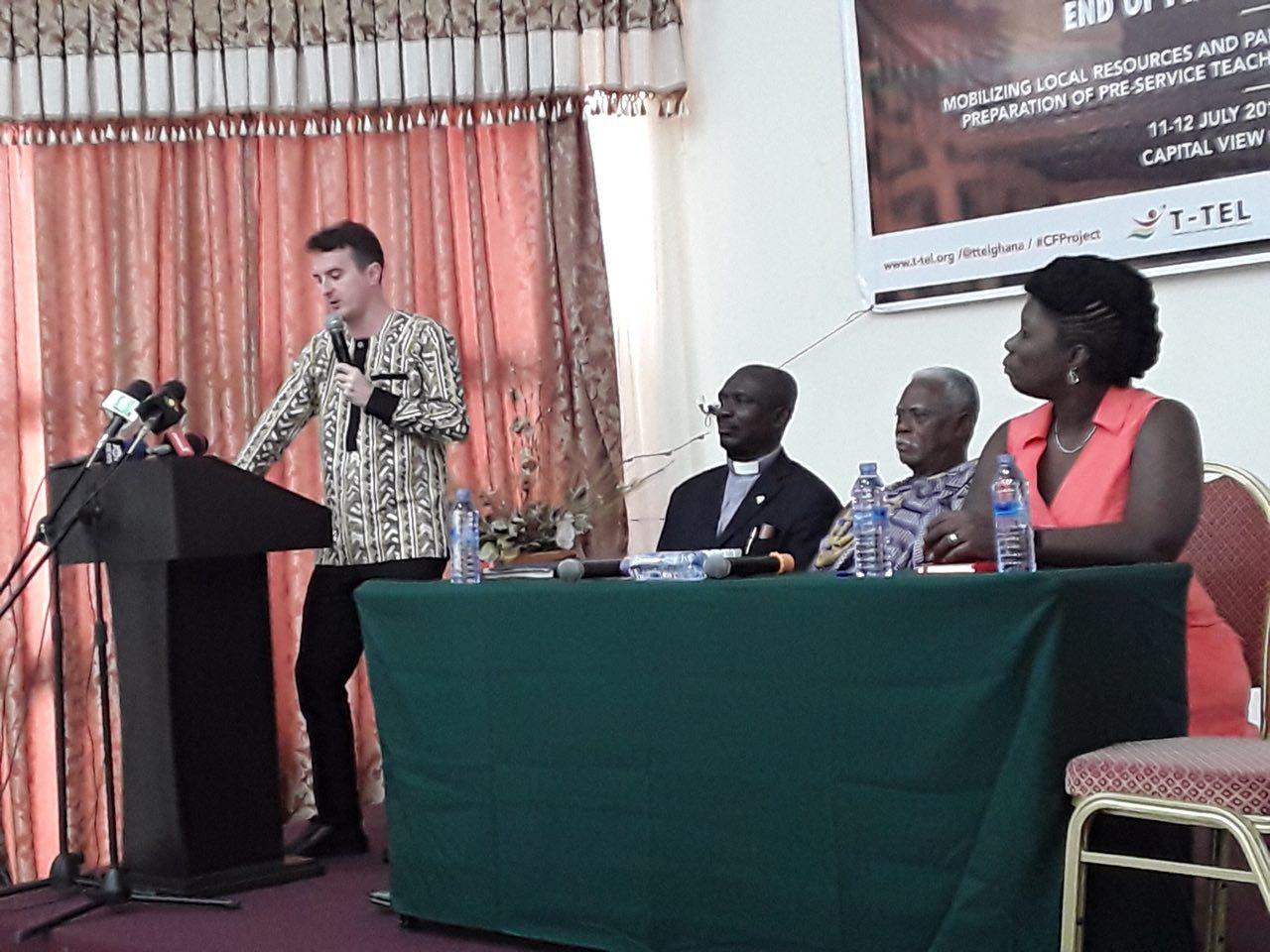
‘Shift education system towards life-long learning‘
Ghana's education system is too focused on examinations and does not do enough to develop critical thinking and problem-solving skills, the Team Leader of the Transforming Teacher Education and Learning (T-TEL), Mr Robin Todd has observed.
“We have a system which focuses on ‘chewing’ and ‘pouring’ – learning facts for examinations -an approach which does not adequately equip our people for the world of work or enable them to achieve their full potential,” he noted.
He said the education system should shift towards, “a system which equips young people to become life-long learners in a knowledge economy. A system which enables Ghana to move beyond aid to trade so that we stand proudly on the world stage as the self-reliant, confident country, which I know we are.”
Mr Todd stated this at a two-day workshop in Koforidua in the Eastern Region, which brought together nine colleges of education to evaluate how the colleges used their challenge fund to build the capacities of their staff in readiness for the
T-TEL
The T-TEL, which is a four-year government of Ghana programme with support by the UK Department for International Development (DFID) is supporting CoEs to build their capabilities and capacities.
The T-TEL, in
The two-day workshop, on the theme, “Mobilising local resources and partnerships to improve the professional preparation of pre-service teachers in Ghana’s colleges of education,” brought together representatives of the participating colleges and some stakeholders to share their successes and challenges and how to sustain the programme, which officially ended this year.
Vision
Mr Todd believed that it should be possible where the public education system was so good that no Ghanaian would feel the need to send their children to a private school.
“This is the vision. What are we doing to make it a reality? Education starts with the teacher and so, reforming teacher education is an absolute priority, building upon the strengths, which already exist across Ghana's 46 public colleges of education,” he said.
Entry requirements
He explained that the government wanted to raise the profile of the teaching progression, adding that government was starting by raising the entry requirements for basic school teachers so that they were equivalent to those of other professions.
Mr Todd hinted that from October this year, all new entrants to the teaching profession would be required to study bachelors of education degrees offered by the
Standards
He said the traditional public universities, which would be mentoring the
“Aligning the new curriculum with these standards will ensure that we train the teachers which Ghana needs to deliver a world-class education system.
“The curriculum will be very practically focused with 30 per cent of the total assessment marks being related to practical assessments of teaching ability and will focus on ensuring that teachers are confident in the use of learner-centred approaches to encourage critical thinking and problem solving,” Mr Todd announced.
Licencing
Mr Todd explained that after the four-year bachelor degree, the student teachers would spend one-year teaching in basic schools, employed by the GES before they would receive their licence to practice and achieve qualified teacher status.
“This licence is important because it provides an independent validation that each teacher has the practical skills and capabilities to meet the requirements of the National Teachers Standards,” he explained.
Learning process
The Chief of
He was hopeful that the programme would lead to improvement in learning among students.
